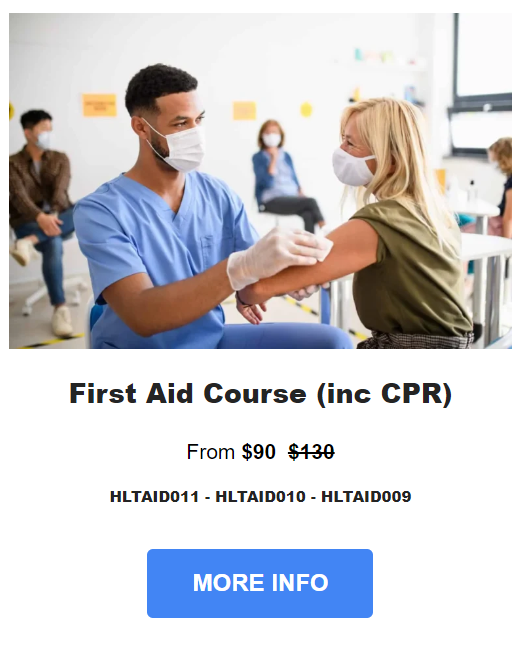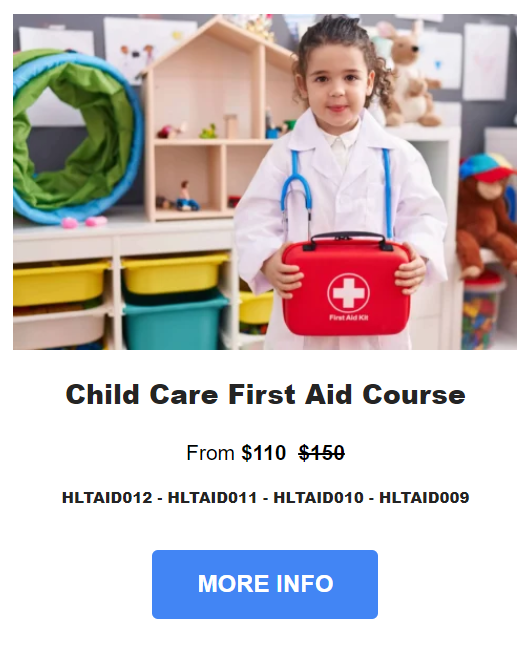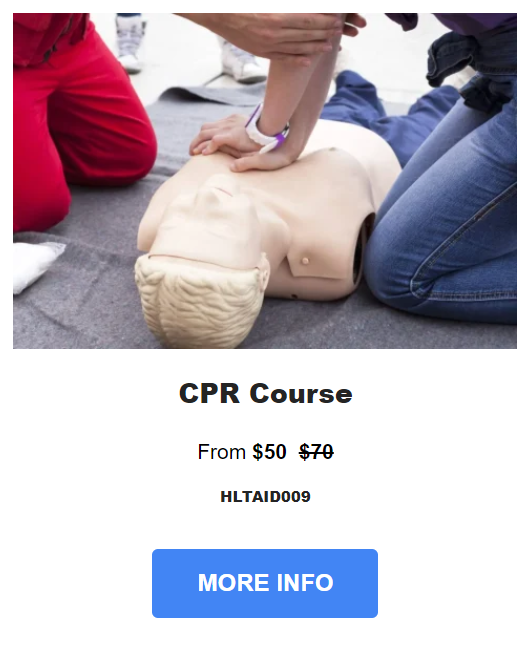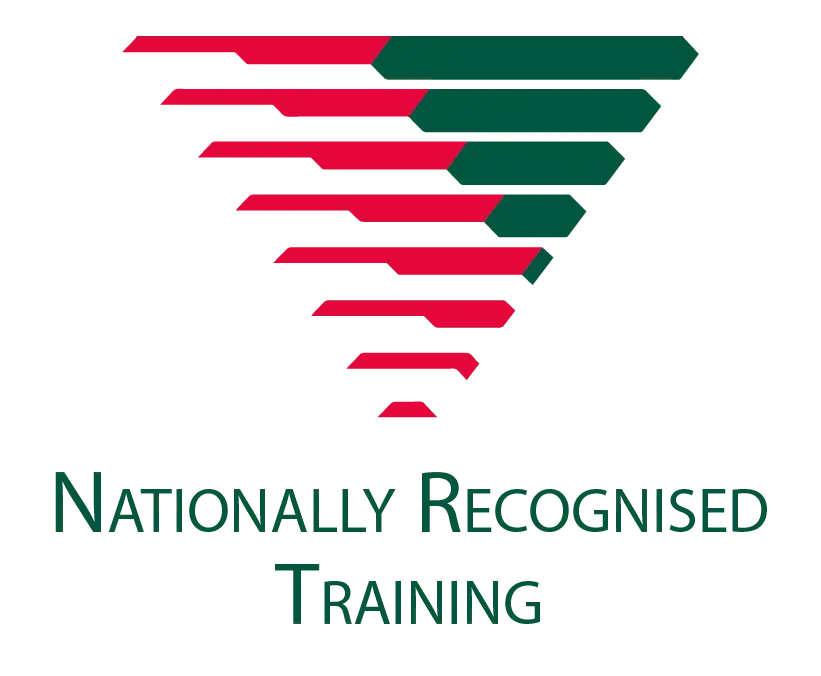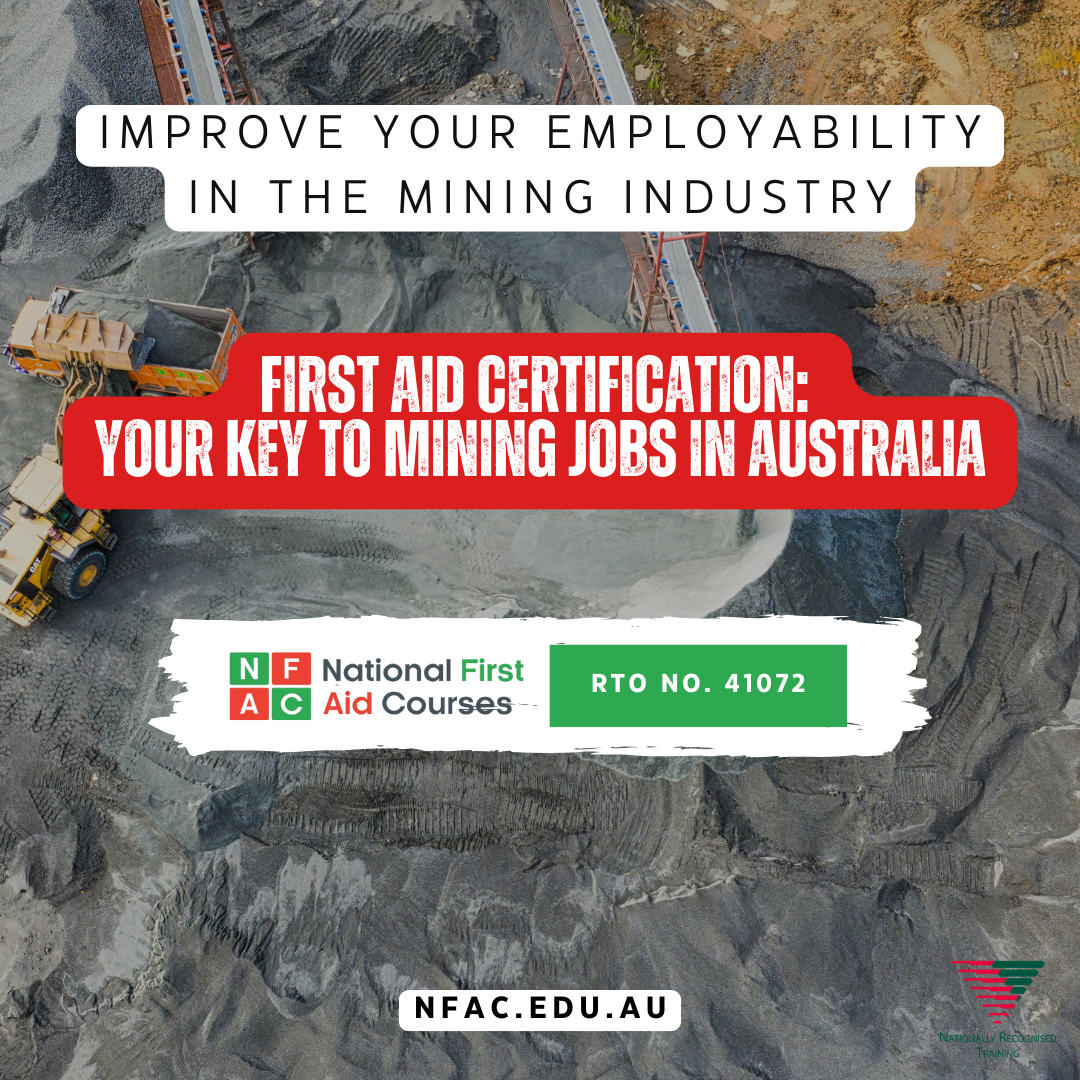
Table of Contents
Key Takeaways
- ✓ Stand Out with a First Aid Certificate: Holding a First Aid certificate for mining jobs shows employers that you’re proactive about safety and prepared for emergencies, making you a more desirable candidate in a competitive field.
- ✓ Meet Industry Standards and Employer Requirements: Many mining job postings specifically require a First Aid certificate. By getting certified, you meet the minimum requirements to apply for mining jobs and avoid being filtered out in the recruitment process.
- ✓ Improve Your Job Security in the Mining Sector: First Aid certification is highly valued in the mining industry, increasing your job security in this high-demand, high-risk sector.
- ✓ Enhance Your Career Progression Opportunities: Many mining roles, especially leadership and specialist positions, prioritise candidates with First Aid certification. This certification can help you move up the ranks, such as becoming a safety officer or emergency response coordinator.
- ✓ Gain Confidence in Handling Emergencies: First Aid skills ensure you are ready to handle emergencies, such as machinery accidents or medical issues on-site. This ability to respond quickly and effectively is critical in the mining environment and can save lives.
Introduction
The mining industry in Australia is booming, but it’s not just about the traditional roles you might expect, like drillers or truck drivers.
There’s a growing demand for skilled workers across a wide variety of support services, from safety officers to administrative staff.
If you’re looking to break into the mining world, having the right qualifications can make all the difference.
One of the most valuable qualifications you can hold is a valid First Aid certificate.
It’s a valuable credential that shows you’re ready to handle emergencies and prioritise safety on-site.
Whether you’re starting your career or looking to upskill, First Aid certification is an important step toward securing a job in the mining industry, where safety is always a top priority.
In this article, we’ll explore how First Aid training can boost your chances in the competitive mining job market and how it ties into the broader range of roles that keep mining sites running smoothly.
The Diverse Job Landscape in Mining
Beyond the Stereotypes: Mining Jobs That Don’t Involve Mining
While mining jobs often conjure up images of heavy machinery and coal dust, the reality is far more varied.
In fact, many essential roles on mining sites are focused on support services rather than direct mineral extraction.
These positions are vital to keeping the operation running smoothly and safely, offering a wide range of career opportunities for people with diverse skill sets.
Roles such as construction workers building infrastructure, maintenance staff keeping equipment running, and hospitality workers managing site accommodation — all play a vital part in the broader mining ecosystem.
These positions, along with many others, are crucial to the success of mining operations.
Additional Roles Where First Aid Certification is Crucial
Certain roles in the mining industry require a higher level of First Aid knowledge due to the hazardous nature of the environment and the potential for emergencies.
Site supervisors, environmental officers, HR personnel, and even catering staff working in remote areas all benefit from having First Aid skills.
When accidents happen, being able to react quickly and effectively can save lives and reduce the impact of injuries, making you an invaluable asset to any mining employer.
Below is a breakdown of some key roles in mining that require First Aid certification to ensure both safety and operational efficiency:
| Job Role | Typical Work Environment | Example Tasks |
|---|---|---|
| Site Labourer | Onsite, supporting general construction tasks | Assisting with building, manual tasks, site cleanup; administering first aid for minor injuries. |
| Health and Safety Officers (HSE Officers) | Across the site | Managing WHS compliance, conducting risk assessments; ensuring first aid kits are stocked and protocols are followed during emergencies. |
| Hospitality Staff | Kitchens or dining areas | Preparing meals, maintaining dining facilities; responding to choking incidents or allergic reactions with first aid. |
| Cleaning Crew | Site accommodation and common areas | Sanitation, waste management; assisting with first aid in case of slips or chemical exposure incidents. |
| Administrative Staff | Site offices | Scheduling, data entry, managing payroll; providing first aid in case of office-related emergencies. |
| Drillers' Assistants | Near drilling operations | Preparing drilling sites, maintaining equipment; administering first aid for drilling-related injuries. |
| Crane Operators | Construction and materials handling areas | Operating cranes to lift and move heavy materials; assisting with first aid during lifting incidents. |
| Environmental Officers | Across the site and nearby areas | Ensuring environmental compliance, monitoring waste; providing first aid in cases of exposure to hazardous materials. |
| Vehicle Mechanics | Workshops or vehicle bays | Repairing and maintaining vehicles; addressing workshop-related injuries with first aid. |
| Warehouse and Supply Chain Staff | Storage and distribution facilities | Managing inventory, organising deliveries; assisting with first aid in case of falls or equipment mishandling. |
| Entry-Level Utility Workers | General site areas | Performing basic site maintenance and support tasks; providing first aid for minor injuries. |
| Camp Services Staff | Site accommodation areas | Managing site lodgings and amenities; responding to first aid needs in living quarters. |
| IT Support Staff | Site offices | Managing communication networks, troubleshooting systems; providing first aid for electrical or ergonomic injuries. |
Steps to Obtain a First Aid Certificate
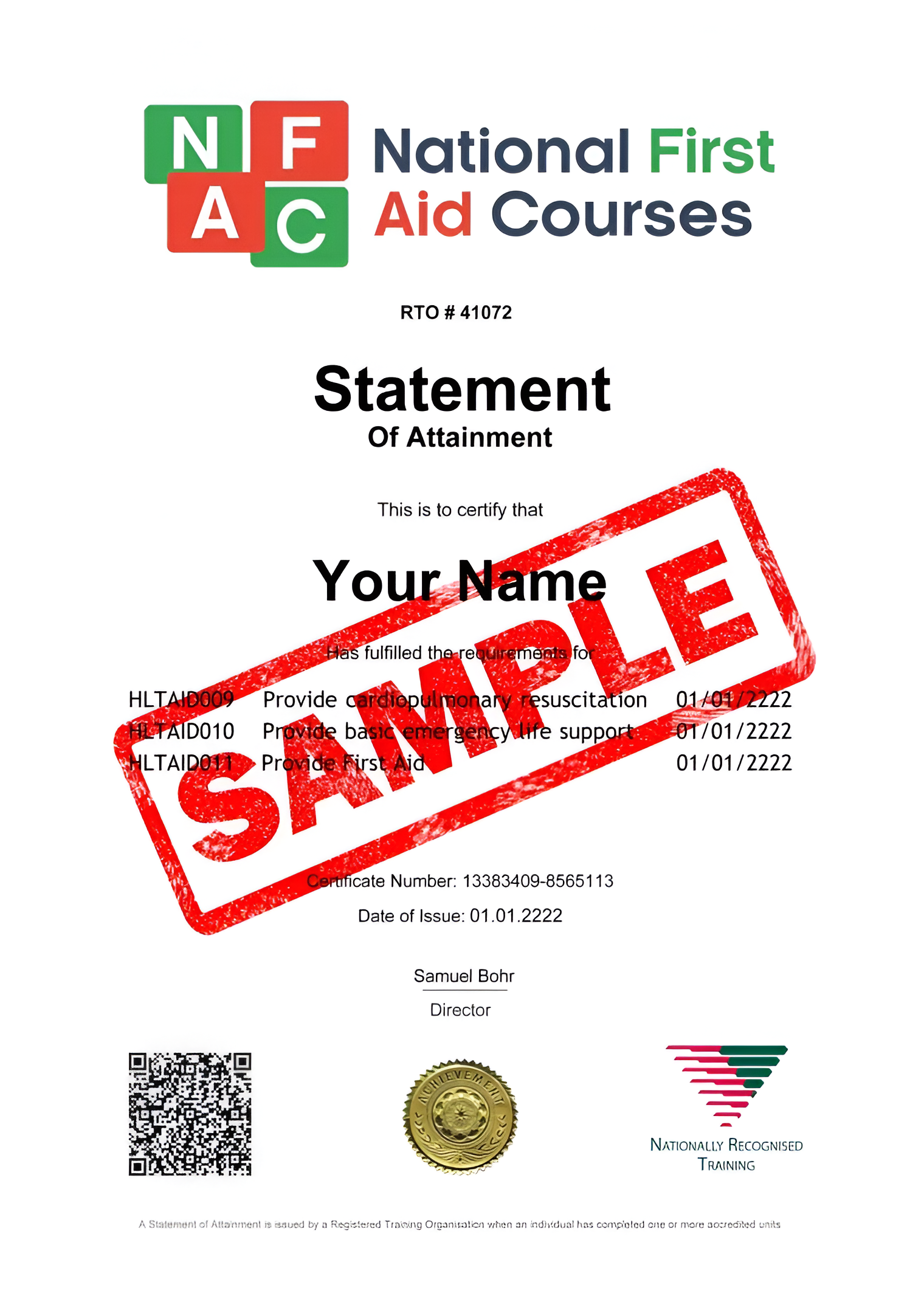
Choose a Government-Approved First Aid Course Provider
When selecting a First Aid course, it’s vital to choose a provider that is an accredited Registered Training Organisation (RTO).
This ensures that the training meets the necessary safety standards and protocols required for mining sites.
Pairing First Aid Certification with Other Essential Skills
While First Aid certification is a key credential, it’s even more effective when paired with other qualifications that are in demand across the mining industry.
Consider adding the following:
- White Card Training: The White Card is mandatory for anyone working on construction sites, including many roles within the mining sector.
- CPR Refresher Training: Regularly updating your CPR certificate ensures you’re ready to respond to emergencies effectively.
- High-Risk Work Licenses: For roles that involve operating heavy machinery or working in dangerous environments, having the relevant high-risk work licenses is a must.
By combining First Aid with these qualifications, you’ll boost your employability and your ability to contribute to a safe and efficient work environment in the mining industry.
Benefits of First Aid Certification for Mining Jobs
Meeting Minimum Job Requirements
Many mining jobs posted on job boards like SEEK, explicitly state that First Aid certification is a mandatory requirement.
If you’re applying for roles in the mining sector without this certification, your resume may be automatically filtered out by applicant tracking systems (ATS).
To even be considered for many mining positions, you need to meet these basic safety qualifications.
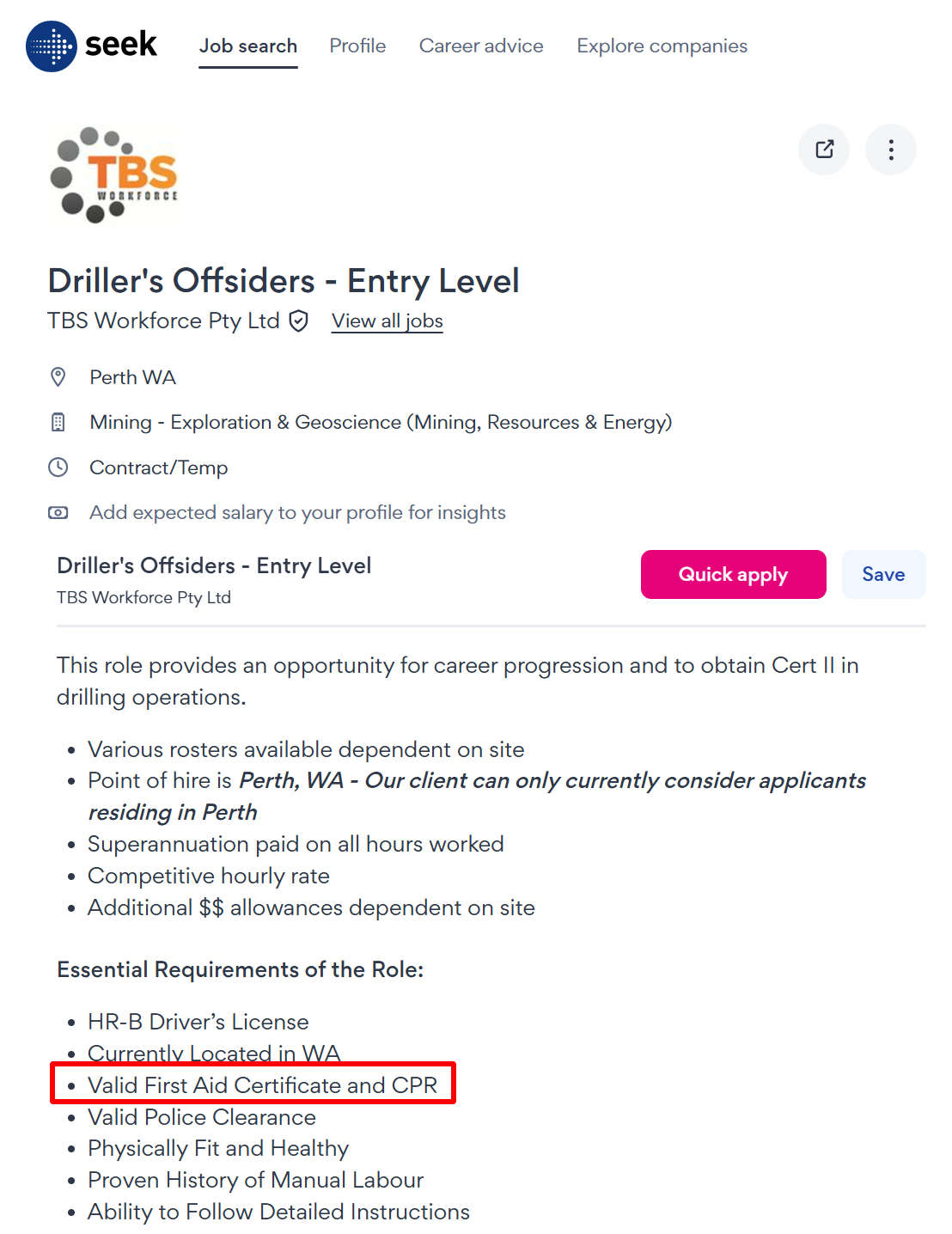
Enhances Employability
In the mining industry, safety is paramount.
Employers are actively seeking candidates who are not only skilled in their trade but also understand the importance of safety and preparedness.
By holding a First Aid certification, you immediately stand out as a proactive and responsible worker.
It’s a clear signal that you’re ready to take on the challenges of high-risk environments, making you a valuable asset to any employer.
Opportunities for Career Progression
First Aid certification doesn’t just help you land a job — it can accelerate your career.
Many mining jobs, especially leadership or specialist roles, require workers to have First Aid training.
Positions like emergency response coordinator or safety officer often prioritise candidates with this certification.
By gaining your First Aid qualification, you’re positioning yourself for greater responsibilities and career growth in the mining sector.
Confidence in High-Pressure Situations
Accidents and emergencies are a reality in high-risk industries like mining.
With First Aid skills, you’ll have the confidence and knowledge to handle unexpected situations, from machinery accidents to medical emergencies.
This ability to respond effectively can save lives and help prevent further harm, making you an valuable team member in high-pressure environments.
How to Get First Aid Certified for the Mining Industry in Australia
What to Look for in a First Aid Course
When selecting a First Aid course for a mining job, it’s crucial to make sure the training covers everything you’ll need to respond effectively in emergency situations.
Look for courses that provide:
Training in CPR, Injury Management, and Emergency Response: A comprehensive course should cover the fundamentals of CPR, injury management, and how to respond to a variety of medical emergencies — including how to assess and stabilise injured individuals until professional help arrives.
In-Person Training: While online courses can be convenient, they can lack the practical, hands-on experience you need for situations you’ll face on a mining site. In-person training ensures that you not only learn theory but also gain the practical skills necessary to act swiftly and effectively in an emergency.
RTO and National Accreditation: It’s essential to choose a course delivered by a Registered Training Organisation (RTO) that is nationally accredited. This ensures that your First Aid certification is recognised by mining employers across Australia and meets industry standards. Without proper accreditation, your certification could be viewed as invalid by some employers, which is a risk you can’t afford to take.
Be Cautious of Online Courses
While online First Aid courses may seem appealing due to their convenience, there are a few risks to consider:
Potential Scams: Some online First Aid courses may not be legitimate, and enrolling in these could result in you receiving a certificate that has no value in the job market. Always verify the credibility of the provider before signing up.
Unrecognised Certificates: Many online courses are not accredited or do not meet the national standards required by employers, especially in high-risk industries like mining. A non-recognised certificate may prevent you from securing a mining job, as employers often require proof of legitimate, accredited training.
Lack of Practical Experience: Online courses do not provide the hands-on training necessary for you to confidently perform First Aid in real-life situations. In a fast-paced, high-risk environment like a mining site, practical experience can make all the difference.
When selecting a First Aid course, always choose one that offers accredited training with a focus on practical, in-person experience to ensure you’re fully prepared for any situation on a mining site.
Key Considerations for Starting Your Mining Career
Essential Skills for Entry-Level Mining Roles
While First Aid certification is a key asset for any mining job, there are other essential skills that make candidates truly job-ready.
These skills include:
- Basic Mechanical Aptitude: Even for non-technical roles, a solid understanding of basic machinery or equipment maintenance can be valuable.
- Workplace Communication Skills: Clear communication is essential on any worksite, particularly in high-risk environments like mining. The ability to effectively communicate with supervisors and colleagues is vital.
- Adaptability to Remote Environments: Many mining jobs are in remote locations, often in harsh conditions. Being able to adapt to and thrive in these environments is key to succeeding in the industry.
Transitioning Your Current Skills to Mining
If you’re looking to move into the mining sector, the skills you’ve gained in your current career may be highly transferable.
For instance:
- How Transferable Skills Align with Mining Roles: If you have experience in logistics, construction, or safety management, these can easily translate to roles within the mining industry.
- The Role of First Aid Certification: Whether you’re in a construction, warehouse, or safety-focused job, having a recognised First Aid certification can enhance your resume and make you more attractive to potential employers in the mining sector.
Understanding the Mining Recruitment Process
Getting hired in the mining industry requires a strategic approach.
Here’s a breakdown of what you need to know:
- Certifications and Applicant Tracking Systems (ATS): Many mining employers use ATS to filter applicants. Ensure that your First Aid certification and any other relevant qualifications are clearly highlighted on your resume to make it through these systems.
- Standing Out in the Job Market: Tailor your resume to highlight your First Aid certification and any safety-related skills. These are highly sought after in the mining industry and can give you an edge over other candidates.
- Preparing for Mining Job Interviews: Familiarise yourself with common interview questions related to safety, teamwork, and problem-solving. Being prepared to discuss your First Aid certification and how it applies to real-world mining scenarios will help you make a strong impression.
Frequently Asked Questions (FAQ)
1. How long does a First Aid certification last?
First Aid certifications are typically valid for 3 years (12 months for CPR), after which you’ll need to renew your certification. Many employers in the mining industry will require that you keep your skills up to date, and completing a CPR refresher course is often a part of the renewal process.
2. Do I need First Aid certification for every mining job?
While not every role in mining requires a First Aid certification, many employers prefer or even require it, especially for those in roles with responsibility for worker safety. Even in non-safety-focused roles, First Aid training can make you stand out as a responsible and capable candidate.
3. How do I find an accredited First Aid course provider?
Look for training providers that are accredited by the Australian Skills Quality Authority (ASQA) or other recognised industry bodies. Accredited providers will issue you a nationally recognised certificate, which is important for your employment prospects in the mining industry.
4. Can First Aid certification help me get a job in the mining industry if I have no prior experience?
Yes! First Aid certification can significantly enhance your job prospects, even if you don’t have mining experience. Employers in the mining industry value safety-focused candidates, and having a First Aid certification shows that you are proactive about workplace safety. This can help you get your foot in the door for entry-level positions, such as in administration, hospitality, or general site support.
5. How much does First Aid training cost, and is it worth the investment?
The cost of First Aid training can vary depending on the provider and the course content. Generally, courses range from $50 for CPR courses to $300 for other First Aid courses. Considering the potential for increased employability and career advancement in the mining industry, this is a worthwhile investment. Plus, First Aid skills are transferable to many industries, providing long-term value beyond just the mining sector.
6. Are there any government subsidies or funding for First Aid training?
Some state and territory governments offer funding or subsidies for First Aid training, especially for those in industries like mining, construction, and healthcare. It’s worth checking with local training providers or government websites for any available financial support, particularly if you’re unemployed or looking to upskill for a specific job.
7. Can I use my First Aid certificate for jobs in other industries?
Absolutely! While this article focuses on the mining industry, First Aid certification is highly transferable and valuable in many other sectors — including construction, healthcare, education, and even hospitality. Having a nationally recognised First Aid certificate makes you more versatile and increases your job opportunities across multiple industries.
8. How does First Aid certification impact my career progression in the mining industry?
First Aid certification can significantly boost your career prospects in the mining industry. It’s often a prerequisite for supervisory and emergency response roles, and can set you apart in a competitive job market. Having this certification shows employers that you’re prepared to handle medical emergencies and contribute to a safe workplace, which can fast-track your way to leadership positions and specialised roles.
Get First Aid Certified at a Training Location Near You!
Ready to gain the essential skills and knowledge to enhance your resume and advance your career?
Look no further than National First Aid Courses — Australia’s leading First Aid Course provider.
As a Registered Training Organisation (RTO 41072), we guarantee you will receive the highest standard of training.
We offer official, accredited, nationally recognised First Aid training at affordable prices.
Our comprehensive First Aid Courses are designed to equip you with the knowledge and certifications needed to provide life-saving assistance in emergency situations.
With face-to-face instruction, same-day certificates, and convenient locations across New South Wales and Queensland (including Sydney, Brisbane and the Gold Coast) we make it easy for you to become a certified First Aider.
Enrol in one of our upcoming First Aid courses and secure your spot today!
Author Bio:

Jacqueline Lisa
Manager and Accredited First Aid Trainer at National First Aid Courses (NFAC)
With over a decade of experience in the childcare and aged care industries, Jacqueline has dedicated her career to applying her First Aid knowledge in real-world settings. As an accredited First Aid trainer and manager at National Courses PTY LTD, Jacqueline is committed to delivering nationally recognised First Aid and CPR courses across Australia. She combines her hands-on experience with a passion for teaching, empowering others with the critical skills needed to make a difference in emergency situations.
Connect on Social Media
Contact Us For Assistance
- 1300 623 613
- admin@nfac.edu.au
- Monday to Friday: 8:30 am – 4:30 pm
Share This Article:
Related Articles:

Popular Summer Jobs in Australia: How First Aid Training Can Get You Hired
In this article, we look at why First Aid and CPR training is a must-have skill for anyone volunteering at summer events across Australia. From community festivals to sports carnivals and charity fundraisers, we cover the safety expectations, heat-related risks, and the accredited training that ensures you’re ready to act fast when emergencies strike in the summer heat.
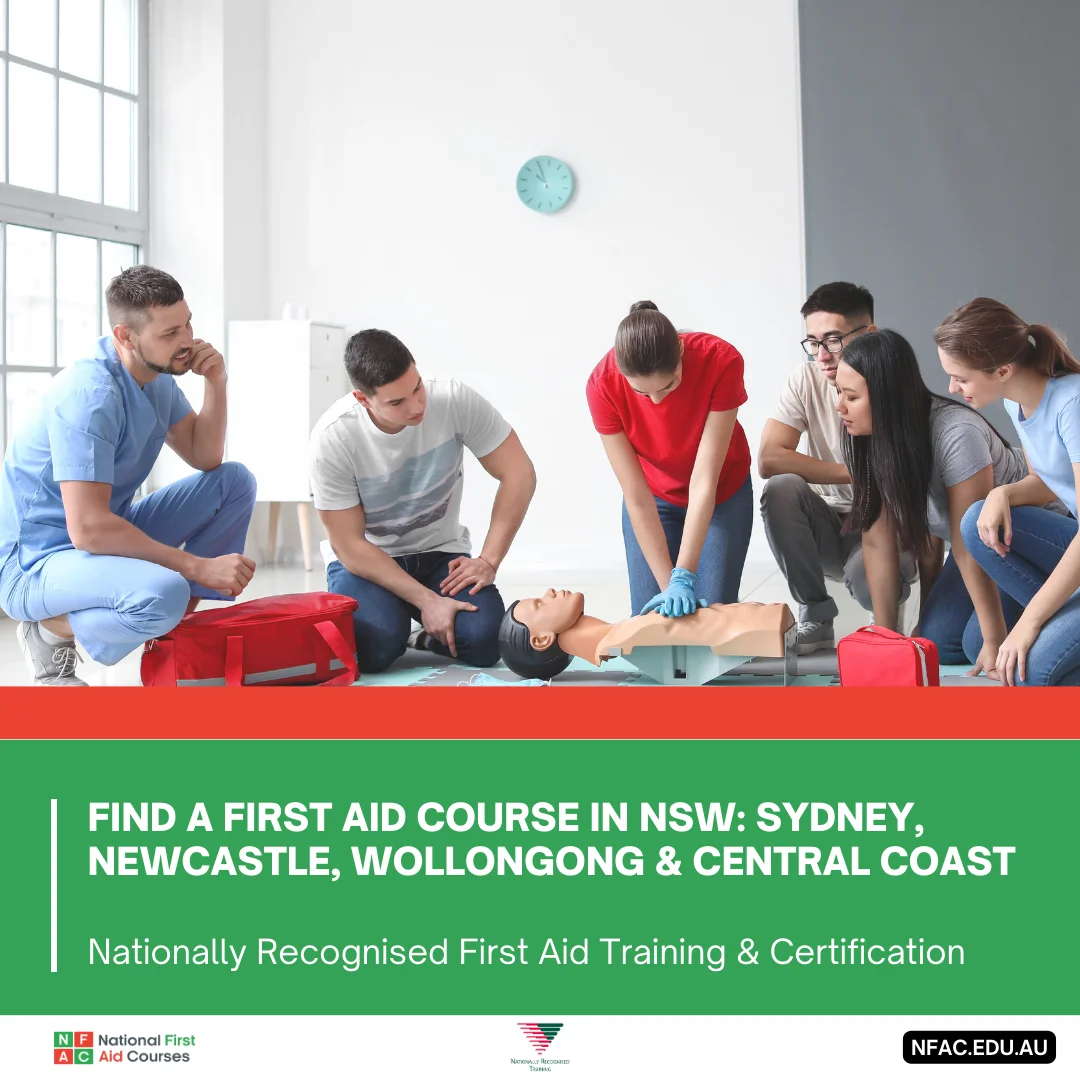
Find a First Aid Course in NSW: Sydney, Newcastle, Wollongong, Central Coast & More
In this guide, we’ll show you exactly how to find the best First Aid course in New South Wales — whether you’re in Sydney, Newcastle, Erina, or Wollongong. From understanding accredited training requirements to comparing face-to-face vs online options, you’ll learn what matters most before booking. Plus, we’ll share tips for choosing a provider that guarantees practical, hands-on skills you can trust in an emergency.
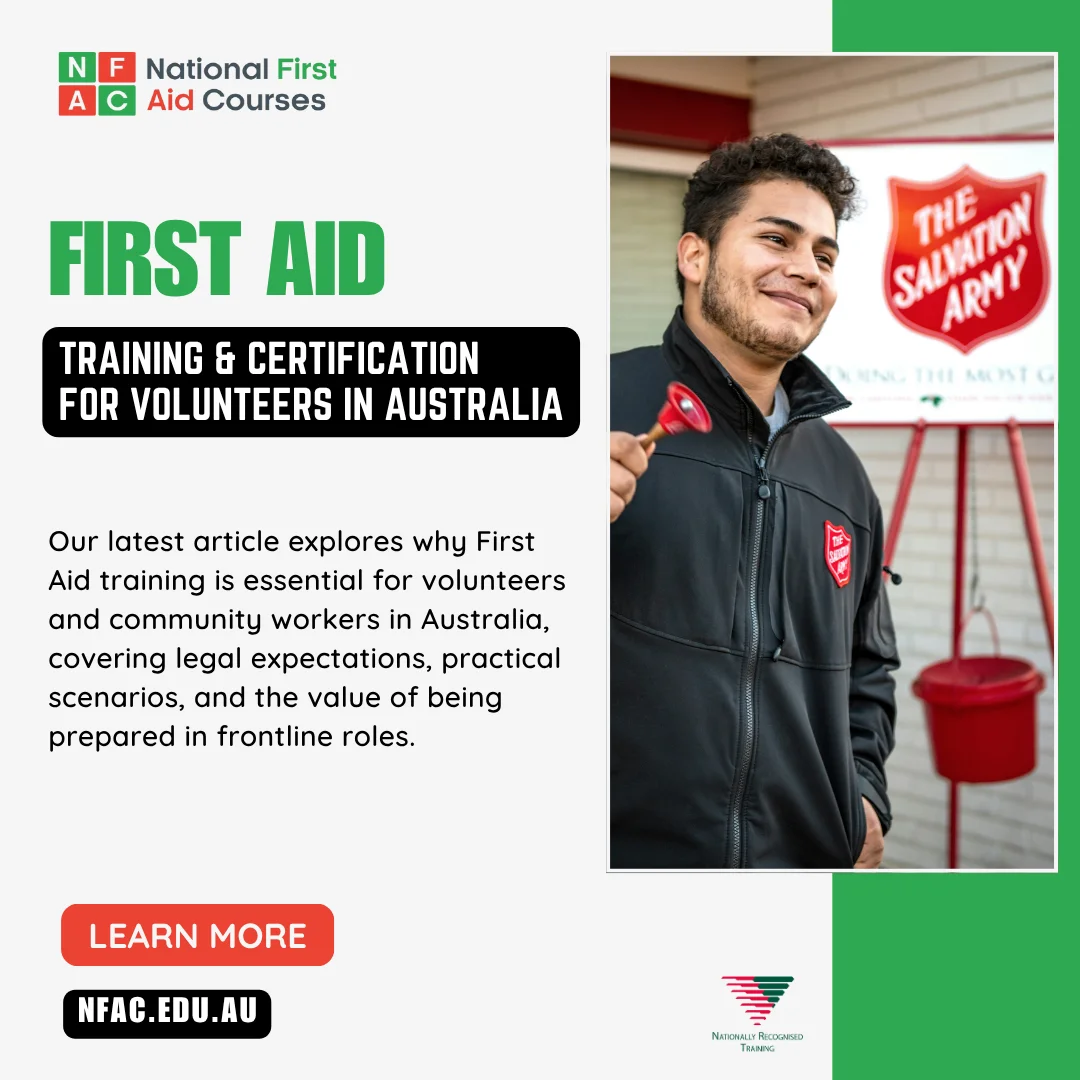
Do Volunteers and Community Workers in Australia Need First Aid Training? What the Rules Say
In this article, we explore why First Aid and CPR training is becoming essential for volunteers across Australia — not just a bonus. Whether you’re helping out at a school, charity event, or aged care centre, we break down the legal requirements, expectations from organisations, and the nationally recognised training that prepares you to step in when it counts.
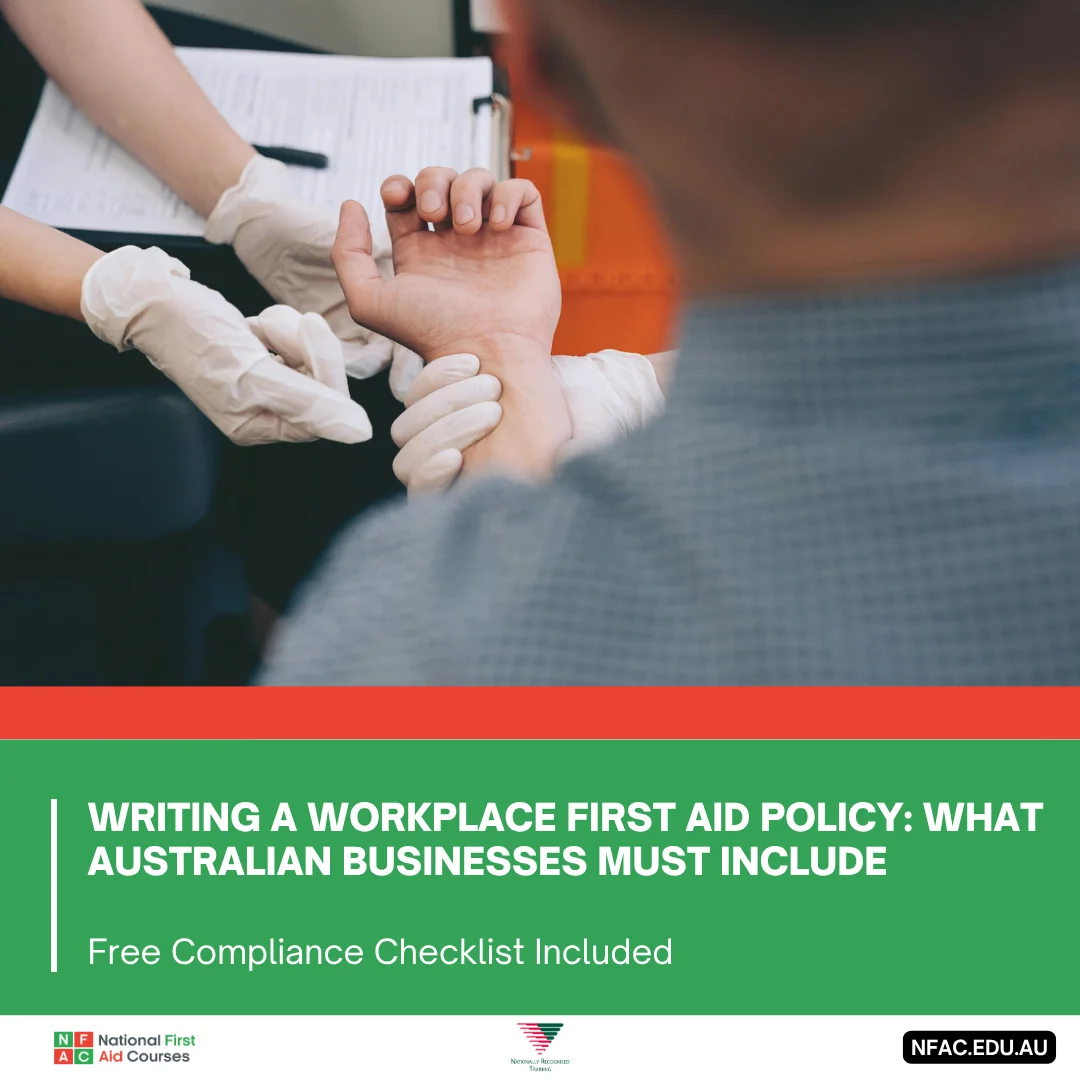
In this guide, we’ll walk you through why every Australian workplace needs a formal First Aid policy — and what should be included to meet WHS standards. From legal requirements to training and kit checklists, you’ll learn how to turn policy into real-world readiness.
